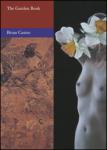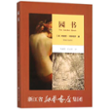
Latest Issues
Notes
-
Epigraph: O where is the garden of Being that is only known in Existence
As the command to be never there, the sentence by which
Alephs of throbbing fact have been banished into position,
The clock that dismisses the moment into the turbine of time?
(W. H. Auden, For the Time Being) -
Epigraph: Writing letters, however, means to denude oneself before the ghosts,
something for which they greedily wait. Written kisses don't reach their destination, rather they are drunk on the way by the ghosts. It is on this ample nourishment that they multiply so enormously. Humanity senses this and fights against it and in order to eliminate as far as possible the ghostly element between people and to create a natural communication, the peace of souls, it has invented the railway, the motor car, the areoplane. But it's no longer any good, these are evidently inventions being made at the moment of crashing. The opposing side is so much calmer and stronger; after the postal service it has invented the telegraph, the telephone, the radiograph. The ghosts won't starve, but we will perish.
(Franz Kafta, Letter to Milena Jesenka)
Affiliation Notes
-
Associated with the AustLit subset Australian Literary Responses to 'Asia' as the work contains an Australian character of Chinese heritage.
Publication Details of Only Known VersionEarliest 2 Known Versions of
Works about this Work
-
“Am I Chinese before I Am a Woman or Am I a Woman First?” : Gender and Racial Melancholia in Brian Castro's The Garden Book
2022
single work
criticism
— Appears in: Journal of Australian Studies , vol. 46 no. 4 2022; (p. 434-449)'The female protagonist in The Garden Book is the site of both imaginary and symbolic fantasy, as well as the melancholic real. In this article, I explore how a Chinese-Australian woman comes to inhabit a melancholic position of racial and gendered difference, and how Brian Castro, through his portrayal, deconstructs identity markers such as race, gender and nation. Born and raised in Australia, Swan is a legitimate Australian citizen. However, her Asian appearance and gender identity compromise her legitimacy as a subject of the Australian nation-state. The Chinese-Australian woman as image and fantasy of Oriental femininity becomes a spectre, an “Other” haunting the history and memory of white Australia. Castro’s writing shows how racial and sexual difference constructs and deconstructs identity, individual as well as national. In Swan’s case, gendered racialisation derived from imperialism disrupts the coherence of national citizenship. Reading the character of Swan as presented through the eyes of the men in her life, this article provides an alternative site where what is excluded, disavowed and lost in white Australia becomes visible. Swan’s racial and gendered melancholia allows us to see imperial violence and colonial eroticism at the heart of cultural essentialism and nationalism.' (Introduction)
-
Transpatriation Processes and Early Twenty-First-Century Transcultural Novels in the Global Age
2016
single work
criticism
— Appears in: Border Crossings 2016; (p. 204-217)'Why focus on transcultural novels? Because, historically, the novel represents one of the earliest examples of a global cultural literary product related to the modern age. In its planetary travels, it has become a literary mutant in the transnational arena of world literature or, as Eileen Julien would say, it has become a creole form, 'a global forma franca, the privileged and prestigious form beyond the nation's border...' (Introduction)
-
y
 Transcultural Writers and Novels in the Age of Global Mobility
Lafayette
:
Purdue University Press
,
2015
8887143
2015
single work
criticism
Transcultural Writers and Novels in the Age of Global Mobility
Lafayette
:
Purdue University Press
,
2015
8887143
2015
single work
criticism
'In Transcultural Writers and Novels in the Age of Global Mobility, Arianna Dagnino analyzes a new type of literature emerging from artists’ increased movement and cultural flows spawned by globalization. This "transcultural" literature is produced by authors who write across cultural and national boundaries and who transcend in their lives and creative production the borders of a single culture. Dagnino's book contains a creative rendition of interviews conducted with five internationally renowned writers—Inez Baranay, Brian Castro, Alberto Manguel, Tim Parks, and Ilija Trojanow—and a critical exegesis reflecting on thematical, critical, and stylistical aspects.
'By studying the selected authors’ corpus of work, life experiences, and cultural orientations, Dagnino explores the implicit, often subconscious, process of cultural and imaginative metamorphosis that leads transcultural writers and their fictionalized characters beyond ethnic, national, racial, or religious loci of identity and identity formation. Drawing on the theoretical framework of comparative cultural studies, she offers insight into transcultural writing related to belonging, hybridity, cultural errancy, the "Other," worldviews, translingualism, deterritorialization, neonomadism, as well as genre, thematic patterns, and narrative techniques. Dagnino also outlines the implications of transcultural writing within the wider context of world literature(s) and identifies some of the main traits that characterize “transcultural novels.”' (Publication summary)
-
Writing Asian Poetry in English
2013
single work
criticism
— Appears in: Mascara Literary Review , June no. 13 2013;'If you open a collection by a contemporary Australian poet, you’re likely to find poems in forms derived from various Asian literary traditions: haiku, ghazal, tanka and other verse forms that originate in the swathe of cultures from the Arabian Gulf in the West to Japan in the North and Indonesia in the South. This is not new, of course. Nineteenth-century French poets, including Baudelaire, were attracted by the pantoum (pantun), a traditional Malay verse form. John Ashbery and other Americans followed suit in the twentieth-century. Contemporary Australian poet Mike Ladd acknowledges this lineage in ‘Pantuns in the Orchard’ (Island, Spring 2011), a recent essay about his experiments with the form during a residency at Rimbun Dahan in Malaysia.' (Author's introduction)
-
Miles Franklin : Castro on List
2013
single work
column
— Appears in: The Advertiser , 27 March 2013; (p. 23)
-
Toccata and Fuge in a Postmodernist Key
2005
single work
review
— Appears in: The Weekend Australian , 20-21 August 2005; (p. 12)
— Review of The Garden Book 2005 single work novel -
Fertile Soil of Our Past
2005
single work
review
— Appears in: The Age , 27 August 2005; (p. 5)
— Review of The Garden Book 2005 single work novel -
The Meaning is Beside the Point
2005
single work
review
— Appears in: The Sydney Morning Herald , 10-11 September 2005; (p. 19)
— Review of The Garden Book 2005 single work novel -
A Most Fertile Garden
2005
single work
review
— Appears in: The Advertiser , 10 September 2005; (p. 10)
— Review of The Garden Book 2005 single work novel -
The Avant-Garde Minder
2005
single work
review
— Appears in: Australian Book Review , October no. 275 2005; (p. 34)
— Review of The Garden Book 2005 single work novel -
Bush Ascetic, with Martini
2005
single work
column
— Appears in: The Sydney Morning Herald , 8-9 October 2005; (p. 20-21) -
When the Past Isn't Past : A Role for Fiction in Australia's History Wars
2006
single work
criticism
— Appears in: The Times Literary Supplement , 19 May no. 5381 2006; (p. 23) Discusses the extent to which contemporary Australian literature is preoccipied with the past. -
Prize for Tale of Two Torn Loves
2006
single work
column
— Appears in: The Australian , 13 September 2006; (p. 7) -
Unpacking Castro's Library, or Detours and Return in 'The Garden Book'
2007
single work
criticism
— Appears in: JASAL , Special Issue 2007; (p. 25-36) Brian Castro's Fiction : The Seductive Play of Language 2008; (p. 175-190) Brennan argues that while 'Castro's writing has always engaged obliquely with ethical concerns' there is a sense through the characters and dialogue of The Garden Book 'that the narrative, while remaining true to more abstract questions of writing, memory, desire and death, wants us to think deeply and urgently about the consequences of the politics of fear currently operating in Australia'. -
Australian Fiction 2005-2006
2006
single work
review
— Appears in: Westerly , November vol. 51 no. 2006; (p. 108-119)
Awards
- 2007 longlisted International IMPAC Dublin Literary Award
- 2006 winner Queensland Premier's Literary Awards — Best Fiction Book
- 2006 shortlisted Miles Franklin Literary Award
- Dandenong Ranges, Melbourne - East, Melbourne, Victoria,
- 1900-1999



